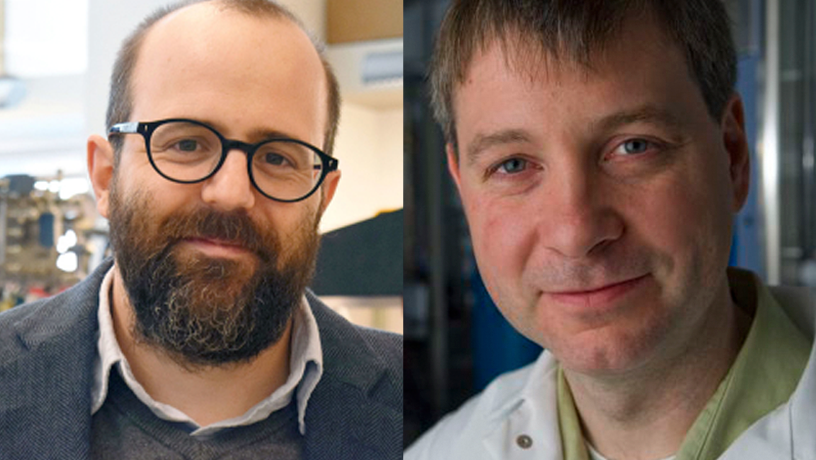Columbia Faculty Receive Grant for Groundbreaking Quantum Research
The pair will focus on an emerging field known as “twistronics.”

(Left) Cory Raymond Dean, Professor of Physics, department of physics. (Right) James Hone, Wang Fong-Jen Professor and chair of mechanical engineering.
Professors James Hone of mechanical engineering and Cory Dean of physics have received a prestigious $1.2 million grant from the Gordon and Betty Moore Foundation to conduct groundbreaking quantum research into an emerging field known as “twistronics.” Their project is among just four selected from hundreds of applicants to the 2020 Flexible Funding competition within the Emergent Phenomena in Quantum Systems Initiative, which supports exploratory work in innovative quantum materials.
Hone, who is head of the Department of Mechanical Engineering and Columbia’s Materials Research Science and Engineering Center, creates and studies nanoscale materials and structures for a wide variety of applications. Combining materials synthesis, fabrication of nanoscale structures, and characterization via various techniques, his interests include two-dimensional materials consisting of atomically-thin sheets, such as graphene, and manipulating them into layered heterostructures with unusual properties.
Dean is a professor of physics and head of an experimental condensed matter physics laboratory. His research focuses on uncovering new ways to manipulate the quantum properties of two-dimensional materials, with a particular interest in systems where man-body interactions can be exploited to engineer novel electronic phases.
Twistronics refers to stacking atomically-thin materials and rotating layers relative to one another to create novel materials with exotic properties. In nearly all work to date, such “twisted” structures have been confined to a fixed twist angle once produced. In the project funded by the Moore grant, Hone and Dean will create nano-electro-mechanical structures that move and rotate layers using electrical signals, enabling dynamic shifts of structures between very different states.
